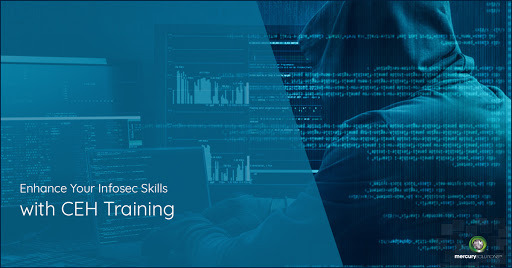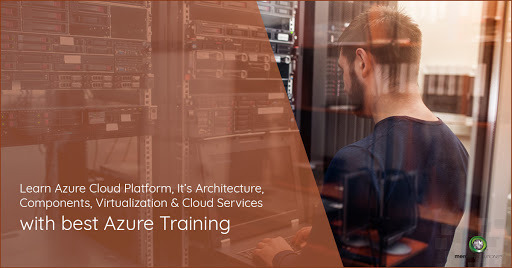Cybersecurity, as a profession is the evolving and pressing field inferable from the regularly increasing cyber-attacks. Any industry that transacts online and carries sensitive data needs a cybersecurity professional today.
A cybersecurity professional is expected to protect the organization’s online assets. It includes a file, network, firewalls, detection of vulnerabilities, monitoring of the activities, identifying the problem and its solution, recover from an attack, disaster recovery and backup plans, and so forth. It’s a role that calls for an incredible amount of responsibility and brings value to the organization. Cybersecurity, more than being a technology, is getting straightforwardly engaged with the business system and development, to earn trust and win the business.
If You think of any industry, there is a need for a cybersecurity professional there today. For instance, financial services, aerospace firms, defense, government agencies, e-commerce, m-commerce, digital service agency, and, etc. The cybersecurity professionals look for security solutions from data in transit to data at rest. It includes Identity Management, Endpoint Security, Data Security, Application Security, Secures Your Email, Secures Your Web, Compliance & Control Management, Manage Unified Threat, Incident Management, Secures Configuration, System Security, and Infrastructure.
A few of the key roles played by the cybersecurity professionals C-suite Level down to Systems Administrator include: –
- Chief Information Security Officer (CISO): Being at the c-suite level management position, the CISO directs the strategy, operations, and the budget to protect the information assets and its management in an enterprise. The scope of responsibility encompasses communication, infrastructure, applications, policies, and procedures. The equivalent position to the CISO includes Chief Information Technology Officer (CIO), Information Systems Security Manager, Corporate Security Executive, and/or the Information Security Director.
- Forensic Computer Analyst: Forensic Computer Analyst retrieves erased or the encrypted data from the computing devices like smartphones, computers, and, etc. The data thus received are analyzed and restored to its original and undamaged state. The Job titles go as Computer Forensics Analyst, Computer Forensics Investigator, Computer Forensics Specialist, Computer Forensics Technician, Digital Forensics Specialist, or the Forensic Computer Examiner. They work in varied domains namely, private sector, corporate, investigative organizations, defense, federal, government, and law enforcement domains.
- Information Security Analyst: Information Security Analyst monitors the networks for security breaches and its investigation, identifies the potential vulnerabilities, installs, maintains, and protects the sensitive data in software, follow the best practices, initiate, and develop the security standards. Moreover, he stays up to date on the latest trends, technology, and takes initiative to advance the security system in an organization.
- Penetration Tester: Penetration/Pen testers in an organization are the designated professionals who hack the information security environment to evaluate and tighten the security potential. It is a simulated attack as that of a hacker, but there it is made to determine the vulnerabilities and thus safeguard the information. The pen testers identify the network security issues, policy compliance, follow the best-recommended security practices, assess the responsiveness, and enhance the awareness of the employees. They work with the IT department and form an integral part of the risk management team. them. And, protects the system with countermeasures whenever there is an unauthorized attempt by a user. The other titles include Information Security Architect and the Information Systems Security Architect.
- IT Security Engineer: The IT Security Engineer is responsible for configuring the firewalls, detecting the systems, testing and evaluating the software/hardware, implementing the new technologies, identifying the security solutions, implementing the multi-layered defense, and, etc. In brief, the IT Security Engineer helps the businesses by guarding the sensitive data safe against the cyber-criminals and the hackers.
- Security Systems Administrator: A Security System Administrator is mainly involved in installing, administering, maintaining, and troubleshooting the network, computer, and data security systems. The security system administrator is in charge of the daily operations like monitoring of the systems, run backups, user accounts, and, etc. A few of the related and similar jobs include Network Security Administrator or the IT Security Administrator.
- IT Security Consultant: IT Security Consultant is mainly involved in protecting the cybersecurity initiatives and objectives of an organization. Generally, they are hired by small companies who may not afford to have an in-house team. The job may involve travelling to the location of the clients’ businesses. This is a broad term used for the job. The specified available jobs carry the designation like the Information Security Consultant, Computer Security Consultant, Database Security Consultant, and the Network Security, Consultant.

These are the generic job positions according to the industrial needs and involvement of specific technology, there arise subtle variations in the careers. Thus, going forward, if you decide to take up a career in cybersecurity and looking to gain its IT training and certifications, then, you are at the right time to start/enhance your career in cybersecurity.
You can take up either one of these training for getting these kinds of role in the Cybersecurity head: –
- Certified Information Security Manager (CISM Certification): Is one of the best IT courses in cybersecurity. As CISM professional a professional operating in this area is responsible for managing, developing and overseeing Information Security Systems for developing best organizational security practices or enterprise-level applications. CISM professionals have experienced security professionals who have at least 5 years of industrial exposure in information security that enables them to teach fundamental risk assessment skills that are extremely needful for the privacy risk consultant. Their job and involvement in the system has led them to earn an average salary of $243,610.
- Certified Information Systems Auditor (CISA Certification): CISA Certification is one of the best IT courses that validates a professional with proven ability to identify, assess, evaluate, monitor and control the enterprise systems. Considering the increasing risks and vulnerabilities in the digital era, it has become necessary to employ professionals with proven knowledge and skillset to audit and control business systems. Where a CISA professional is entitled to perform general and application control reviews for complex and simple computer information this includes system development standards, system security, backup & disaster recovery, programming & communication controls. This is why a CISA gets an average salary of $122,326.
- Computer Hacking Forensic Investigator (CHFI Certification): CHFI Certification is one of the best IT courses that investigate cyberattacks from its root. Computer Hacking Forensic Investigation as a process is about detecting cyberattacks and properly extracting evidence to report the crime and auditing that can prevent future attacks. CHFI certification equips with the knowledge and skills required for uncovering and analyzing complex digital evidence in a forensically form. Hence, a CHFI professional is expected to ensure that they have investigated the matter on legal grounds and are admissible. This gives a certified CHFI professional the ability to ply their trade across a wide range of computing environments irrespective of what the technology that is. CHFI is one certification that is not just being required in the IT industry, today professionals having this certification are getting commissioned in the armed forces like the Military & Defenses, legal practice, in fact, such professionals are also demanded in the banking & insurance sector and in the cybersecurity firms. Keeping the kind of skills that they have these professionals are offered an average annual salary of $88,000.
- Certified Ethical Hacker (CEH Certification): Believe it or not but hackers are one community that is highly innovative because they somehow find a way to break through your systems and exploit the information available on it. These tech-savvy people are always proactively looking for vulnerabilities on your systems. Since they are always finding ways to extract information from your systems without getting trapped. Hence, CEH professionals have to be extra cautious and this is why they use highly sophisticated equipment, skills, and techniques to spot the system vulnerabilities and filling these needful gaps. These professionals are such an integral part of an organization’s system that they are offered an average salary of $150 000. This is one of the few courses that professionals can take up after the 12th. It perhaps is the perfect course in IT if you are looking for IT courses online for beginners. In
- Certified Information Systems Security Professional (CISSP Certification): CISSP Certification is one of the best IT courses that is an advanced-level certification for professionals serious about careers in information security. These professionals are decision-makers possessing expert knowledge and technical skills necessary to develop, guide and then manage security standards, policies and procedures within their organizations. The kind of knowledge they possess has helped them generate an annual salary of $119,184.







